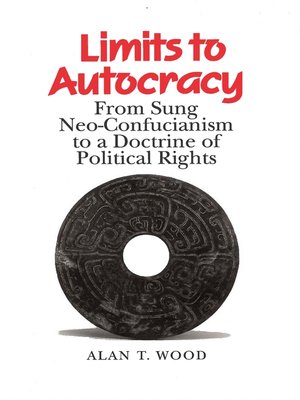Limits to Autocracy
ebook ∣ From Sung Neo-Confucianism to a Doctrine of Political Rights
By Alan T. Wood

Sign up to save your library
With an OverDrive account, you can save your favorite libraries for at-a-glance information about availability. Find out more about OverDrive accounts.
Find this title in Libby, the library reading app by OverDrive.



Search for a digital library with this title
Title found at these libraries:
| Library Name | Distance |
|---|---|
| Loading... |
Alan T. Wood examines the cultural identity of modern China in the context of authoritarianism in the Chinese political tradition. Taking on issues of key importance in the understanding of Chinese history, Wood leads readers to a reconsideration of neo-Confucian thinkers of the Northern Sung dynasty. Modern scholars have accused Sung neo-Confucians of advocating a doctrine of unconditional obedience to the ruler—of "revering the emperor and expelling the barbarian"—and thereby inhibiting the rise of democracy in China. Wood refutes this dominant view by arguing that Sung neo-Confucians intended to limit the power of the emperor, not enhance it.
Sung political thinkers believed passionately in the existence of a moral cosmos governed by universal laws that transcended the ruler and could be invoked to set limits on his power. Wood makes a striking comparison of this view with a similar one of universal morality or natural law that developed in late Medieval Europe. By drawing attention to a much-neglected Confucian text, he contributes significantly to the wider dialog of human rights in China and brings forth fresh philosophical insights in his comparative view of Chinese and Western history.







